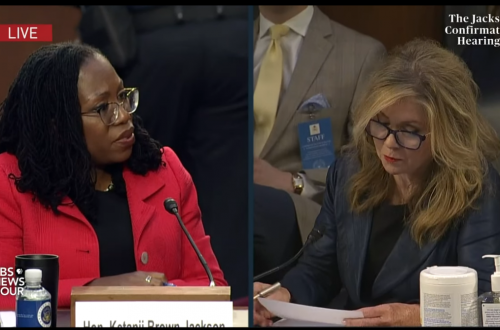 The following quote from Martin Luther is well-known in evangelical circles. Nevertheless it seems that every generation of evangelicalism has to struggle with the priority of Greek and Hebrew in theological education. For this reason, I think it’s worth reminding ourselves from time to time of Luther’s sage words. It’s a reminder to educators to hold the line. It’s an encouragement to students to remember the goal of their toil—to know God through His word.
The following quote from Martin Luther is well-known in evangelical circles. Nevertheless it seems that every generation of evangelicalism has to struggle with the priority of Greek and Hebrew in theological education. For this reason, I think it’s worth reminding ourselves from time to time of Luther’s sage words. It’s a reminder to educators to hold the line. It’s an encouragement to students to remember the goal of their toil—to know God through His word.
And let us be sure of this: we will not long preserve the gospel without the languages. The languages are the sheath in which this sword of the Spirit is contained; they are the casket in which this jewel is enshrined; they are the vessel in which this wine is held; they are the larder in which this food is stored; and, as the gospel itself points out, they are the baskets in which are kept these loaves and fishes and fragments. If through our neglect we let the languages go (which God forbid!), we shall not only lose the gospel, but the time will come when we shall be unable either to speak or write a correct Latin or German…
Hence, it is inevitable that unless the languages remain, the gospel must finally perish.
For more on the priority of the languages, I recommend Jason DeRouchie’s excellent essay “The Profit of Employing the Biblical Languages: Scriptural and Historical Reflections” Themelios 37.1 (2012): 32-50. DeRouchie concludes with exhortations to Christians of all vocational callings:
1. Seminary professors and administrators. Fight to make exegeting the Word in the original languages the core of every curriculum that is designed to train vocational ministers of God’s Book.
2. Church shepherds and shepherds-in-training. Seek to become God-dependent, rigorous thinkers who study, practice, and teach the Word—in that order!
3. Other congregational leaders. Give your ministers who are called to preach and teach time to study, and help your congregations see this as a priority.
4. Young adult leaders and college professors. Encourage those sensing a call to vocational ministry of the Word to become thoroughly equipped for the task.
5. Everyone. Pray to our glorious God for the preservation of the gospel, for our leaders, and for the churches and schools training them.




13 Comments
Don Johnson
Reading a translation is like kissing thru a veil. Better than not kissing at all, but no substitute for the real thing.
Scott Terrell
We don’t agree much Denny, but on this issue we couldn’t agree more! Sadly too many seminaries are losing this perspective and compromising in order to boost enrollment figures.
Jes Womack
Denny,
I have a 12 year old son that is so incredibly interested in Biblical Greek. Our pastor, Wayne Barber, teaches a handful of Greek or Hebrew words with every sermon and our son has a notebook where he writes them all down with their definitions.
The first or second time that he heard Pastor Wayne teach, he made a bee-line up to talk with him and ask him all he could about studying in the Greek. (Our pastor is so cool that he has said he’d be happy to meet with our son one day and help him get started, and we will do that, but I want to be considerate of his time and am thinking there have to be some great resources for beginners.)
I know how to do a basic word study using Dr. Zodhiates’s books, a bit of LOGOS, and a few other tools.
However, I’ve really been feeling like we need to have him in classes. He has a true love for languages.
We homeschool, so if you know of a good place for us to start I can add it to his curriculum.
Interestingly enough, I’ve been wanting to contact you about this for some time.
He also loves the Word of God and is honing the skills of inductive study.
Do you have some suggestions for me on where to start him?
Thanks so much, Denny!
Stephen Beck
Jes, I’m not Denny and while I have taken a couple years of Greek and hope to one day teach my kids and someone else’s kids Greek, I haven’t taught Greek to anyone. But this curriculum has gotten some positive reviews from homeschooling types: http://www.greeknstuff.com/andrew.html (Preteens should be able to start at level 3)
barry joslin
Exactly! Thanks for posting this.
Lance Black
While I am in favor of the essence of what has been posted. I would like to share an idea from Richard Pratt, that in my view, is far a more compelling vision than points 1,3,and 4.
Taken from http://thegospelcoalition.org/blogs/tgc/2010/08/13/tgc-asks-what-one-thing-you-would-change-about-seminary-education/
Richard Pratt answers the question “what is one thing you would change about seminary education?”:
If I were king and could wave my magical scepter, I would radically change the basic agenda of seminary.
After 22 years of teaching in a seminary, I slowly began to realize something. We were not preparing the kinds of leaders that evangelical churches in North America need. Let’s face it; evangelicalism has seen better days. God is at work in many places and in many ways, but on the whole, the news is not good. Our numbers are dwindling; our theology is unraveling; our zeal for Christ is dissipating. Now more than ever, we need seminaries to give the church leaders who are empowered by the Spirit for radical, sacrificial devotion to Christ and his kingdom. And they’d better do it quickly.
I was recently in China, talking with the president of a house church network of more than 1 million people. He asked me for advice on preparing the next generation of pastors. I looked at him and said, “The only thing I know is what you should not do.” He smiled and asked, “What’s that?” My reply surprised him. “You should not do what we have done in the West. The results of that approach have become clear.”
The agenda of evangelical seminaries is set primarily by scholars. Professors decide how students will spend their time; they determine students’ priorities; they set the pace. And guess what. Scholars’ agenda seldom match the needs of the church.
Can you imagine what kind of soldiers our nation would have if basic training amounted to reading books, listening to lectures, writing papers, and taking exams? We’d have dead soldiers. The first time a bullet wizzed past their heads on the battlefield, they’d panic. The first explosion they saw would send them running. So, what is basic training for the military? Recruits learn the information they need to know, but this is a relatively small part of their preparation. Most of basic training is devoted to supervised battle simulation. Recruits are put through harrowing emotional and physical stress. They crawl under live bullet fire. They practice hand to hand combat.
If I could wave a magic scepter and change seminary today, I’d turn it into a grueling physical and spiritual experience. I’d find ways to reach academic goals more quickly and effectively and then devote most of the curriculum to supervised battle simulation. I’d put students through endless hours of hands-on service to the sick and dying, physically dangerous evangelism, frequent preaching and teaching the Scriptures, and days on end of fasting and prayer. Seminary would either make them or break them.
Do you know what would happen? Very few young men would want to attend. Only those who had been called by God would subject themselves to this kind of seminary. Yet they would be recruits for kingdom service, not mere students. They would be ready for the battle of gospel ministry.
Jes Womack
Lance,
From the bottom of my heart I thank you for your comment.
It’s through this type of lense that I look at our homeschooling, and you comment will be one that I’ll refer to often as we continue on our journey.
There are countless parents in this arena who are completely focused on academics, yet study of God’s Word and daily application of it aren’t often at the top of their list.
Thank you for the shot in the arm!
I know you wrote this in context of seminary studies, but it applies for us too.
Thank you!
Lance Black
Jes,
I could not agree more. May your children grow in wisdom, sound doctrine, and compassion for the lost.
Blessings,
Lance
Dan Bruce
I think it very important that we have some members of the body of Christ who are experts in the Greek, Hebrew, and Aramaic languages of the Bible, but it must be admitted that most Christians, even Christian professionals and pastors, do not need fluency in the original languages to be effective ministers of the Gospel. We have a number of excellent study aids and translations by Greek, Hebrew, and Aramaic experts that allow even laymen to understand and apply the Bible’s teachings without being fluent in its original languages, and the Holy Spirit can give understanding apart from any formal training. After all, the original language spoken by our Lord during his ministry was apparently Aramaic, a language in which very few people in Christian ministry are fluent today. Instead, we use a Greek translation of the Aramaic Jesus spoke. Too much emphasis on fluency in original languages tends to give the impression that knowledge of God is limited only to the highly educated, creating a priesthood with the power of esoteric knowledge, and, given time, it eventually tends to result is scholars talking to scholars and hardly anyone else, a situation that has increasingly plagued Christianity in recent years. Don’t get me wrong, scholarship is important, and we need a sufficient cadre of scholars to keep everything on the right track, but scholarship should not be the end goal of the Christian mission, and knowing original languuages should not be the most important requirement for Christian ministry.
Don Johnson
The word of God we have been given is in Hebrew, Aramaic and Greek. A translator acts as a mediator between God’s words and the reader. For non-debateable subjects this works fine, but debateable ones, one may need to go to the original languages. A translator must make word choices, they will do this according to THEIR understanding of the Bible. In effect, they are making it easy for the reader to agree with THEIR understanding of the Bible.
Dan Bruce
Despite all of the obstacles resulting from transmission and translation of God’s word across the ages, I believe that God will reveal his truth to anyone who is genuinely seeking him in the Bible. I have no doubt that the work of the Holy Spirit can overcome all obstacles.
Don Johnson
The challenges is that there is a large distance to bridge between the 1st century culture of the NT and our culture. This is part of the reason there is such a wide variety of interpretations on various aspects of the Bible, the truth is while salvation is clear, other parts are simply not as clear as the original Reformers said. Yes, we can do our best to be diligent, but there is way too much “my way or the highway” tendency among believers on non-salvation debateable issues, which creates factions and are not what Jesus wants. The Holy Spirit is certainly needed, but can be resisted, the slave owners formed the SBC over the issue of slavery, for example, so what was clear to them during the Civil War, now 150 years later has been repudiated by the SBC, thank God.
Scott Terrell
I agree with you Don, but I still see a very basic need for pastors to know the original languages. I hear all the time that “our theology is dying” or “we need better teaching”. Where does that come from if not in seminaries. They are absolutely essential tools in preparing pastors for the tasks of preaching, evangelism, and discipleship. It’s not an either or proposition. Rigorous academics are not incompatible with caring for the sick, missions work, or training up youth. In fact, you could make the case that study should be a prerequisite.
The problem is not that “scholars” determine the agenda. It’s not that seminaries are failing. The problem is an anti-intellectual agenda that had reared its ugly head in American evangelicalism. Take away Greek and Hebrew, take away systematic theology, and your preaching on Sunday mornings is as weak as dishwater & your message has no teeth.